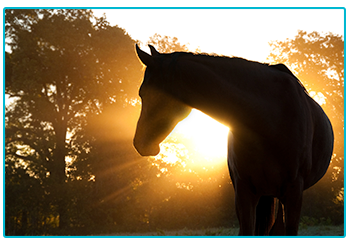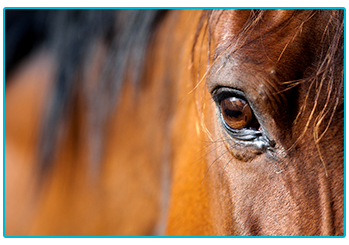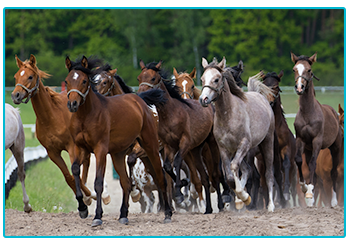There are many magical breeds of horses, each with their own unique characteristics. However when the breeding of horses is taken to extremes, alarm bells can ring among vets. The most prominent recent example of this is that of Arabian colt, El Rey Magnum, who has a particularly dished facial profile, and has sparked a worldwide ethical debate. Here’s why the colt has attracted such controversy and why extreme breeding is often discouraged among experts.

Who is El Rey Magnum?
El Rey Magnum is a nine-month-old colt who was bred in Washington, United States on a specialist Arabian breeding farm called Orrion Farms. While Arabian horses are known for their dished faces, El Rey Magnum’s is an extreme example. His owners have valued him at several million dollars and they unveiled him to the world through a video called The King.

Why is he controversial?
Vets have expressed concern following the release of images of the horse. They fear that El Rey Magnum’s severely dished face may restrict his ability to breathe. Experts are concerned that this Arabian horse breeding could be similar to the trend of breeding brachycephalic dogs, such as pugs and French bulldogs, who can develop breathing difficulties. Unlike brachycephalic dogs, horses are unable to aid respiration by breathing through their mouths, which makes the effects on their airways all the more concerning.
Is El Rey okay?
Primary Breeding Advisor for Orrion, Doug Leadley, told Veterinary Record that the horse “appears to be show-healthy, bouncy and fast.” He claims that El Rey Magnum has a good body and tail carriage and can hold his head high, which is often not the case in horses with faces as extremely dished as the colt’s. One vet in the United States confirmed that El Rey Magnum doesn’t have any respiratory or medical issues.

Why breeding this equine ‘isn’t fine’…
However, Equine Vet and Chief Executive of World Horse Welfare, Roly Owers, said to Veterinary Record: “This appears to be breeding in a weakness that could severely affect future generations – and if there is not a restriction to the airway in this particular animal already then there will be in future generations.” Animal Welfare and Ethics Expert Madeleine Campbell told the publication that while the photos do not give enough evidence to comment on this particular horse, any extreme breeding that could affect an animal’s normal function “must be condemned, on welfare grounds.”
While any negative effects of El Rey Magnum’s breeding have not been seen yet, experts will likely be watching to see how the colt develops. As extreme breeding has led to choosing looks over functionality in domestic animals in the past, such as brachycephalic dogs, it often raises concern. When buying a horse, always be sure to purchase them from a reputable breeder and make certain that the welfare and health of the animal has been considered.
All content provided on this blog is for informational purposes only. We make no representations as to the accuracy or completeness of any information on this site or found by following any link on this site. We will not be liable for any errors or omissions in this information nor for the availability of this information. We will not be liable for any loss, injury or damage arising from the display or use of this information. This policy is subject to change at any time.


